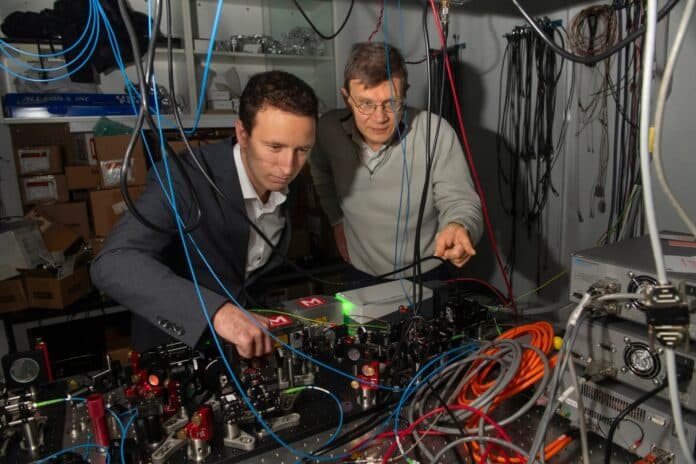The primary challenge for practical quantum computing is error suppression, necessitating quantum error correction for extensive processing. However, implementing error-corrected “logical” qubits, where information is redundantly encoded across multiple physical qubits, presents significant challenges for achieving large-scale logical quantum computing.
A new study by Harvard scientists reports realizing a programmable quantum processor based on encoded logical qubits operating with up to 280 physical qubits. This is a critical milestone in the quest for stable, scalable quantum computing.
This new quantum processor can encode up to 48 logical qubits and execute hundreds of logical gate operations, a vast improvement over prior efforts. This system marks the initial showcase of running large-scale algorithms on an error-corrected quantum computer, signaling the arrival of early fault-tolerant quantum computation that operates reliably without interruption.
Denise Caldwell of the National Science Foundation said, “This breakthrough is a tour de force of quantum engineering and design. The team has not only accelerated the development of quantum information processing by using neutral atoms but opened a new door to explorations of large-scale logical qubit devices, which could enable transformative benefits for science and society as a whole.”
A quantum bit or qubit is one unit of information in quantum computing. In the world of quantum computing, in principle, it is possible to create physical qubits by manipulating quantum particles — be they atoms, ions, or photons.
Harnessing the peculiarities of quantum mechanics for computation is more intricate than merely accumulating a sufficient number of qubits. Qubits are inherently unstable and susceptible to collapsing out of their quantum states.
The accurate measure of success lies in logical qubits, known as the “coins of the realm.” These are bundles of redundant, error-corrected physical qubits capable of storing information for quantum algorithms. Creating controllable logical qubits, akin to classical bits poses a significant challenge for the field. It is widely acknowledged that until quantum computers can operate reliably on logical qubits, the technology cannot truly advance.
Current computing systems have demonstrated only one or two logical qubits and a single quantum gate operation—a unit of code—between them.
The breakthrough by the Harvard team is built upon years of research on a quantum computing architecture called a neutral atom array, pioneered in Lukin’s lab. QuEra, a company commercializing this technology, recently entered into a licensing agreement with Harvard’s Office of Technology Development for a patent portfolio based on Lukin’s group’s innovations.
A block of ultra-cold, suspended rubidium atoms is at the heart of the system. These atoms, serving as the system’s physical qubits, can move around and form pairs or become “entangled” during computations.
Entangled pairs of atoms come together to form gates, representing units of computing power. The team had previously showcased low error rates in their entangling operations, establishing the reliability of their neutral atom array system.
In their logical quantum processor, the scientists have now demonstrated parallel, multiplexed control over an entire section of logical qubits using lasers. This approach is more efficient and scalable compared to individually controlling physical qubits.
Paper first author Dolev Bluvstein, a Griffin School of Arts and Sciences Ph.D. student in Lukin’s lab, said, “We are trying to mark a transition in the field, toward starting to test algorithms with error-corrected qubits instead of physical ones, and enabling a path toward larger devices.”
Journal Reference:
- Bluvstein, D., Evered, S.J., Geim, A.A. et al. Logical quantum processor based on reconfigurable atom arrays. Nature (2023). DOI: 10.1038/s41586-023-06927-3
